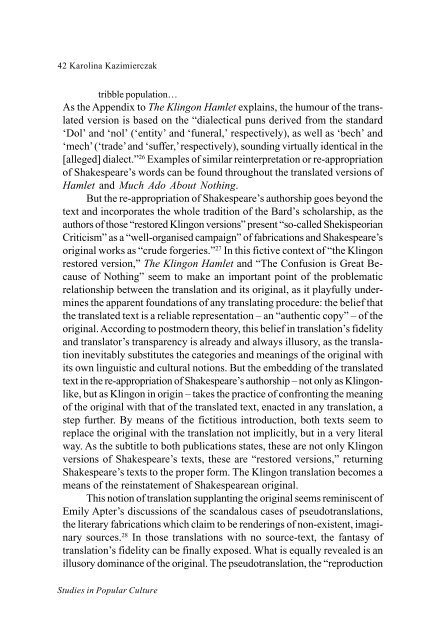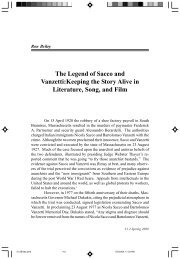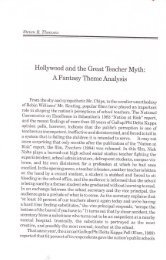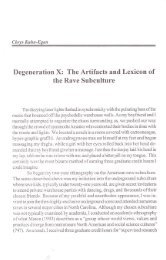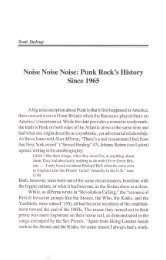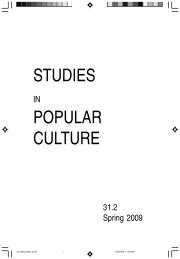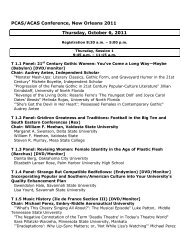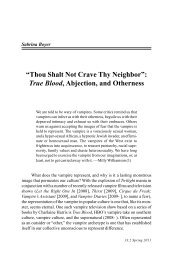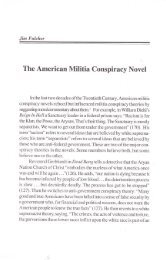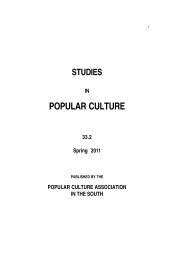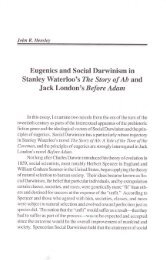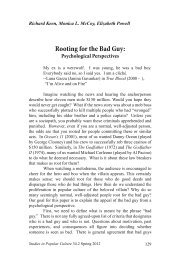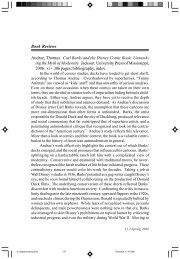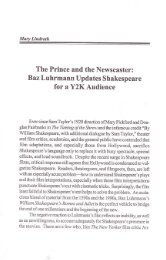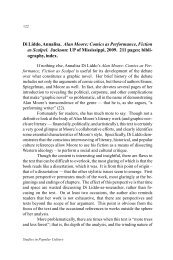Adapting Shakespeare for Star Trek and Star Trek for Shakespeare ...
Adapting Shakespeare for Star Trek and Star Trek for Shakespeare ...
Adapting Shakespeare for Star Trek and Star Trek for Shakespeare ...
Create successful ePaper yourself
Turn your PDF publications into a flip-book with our unique Google optimized e-Paper software.
42 Karolina Kazimierczak<br />
tribble population…<br />
As the Appendix to The Klingon Hamlet explains, the humour of the translated<br />
version is based on the “dialectical puns derived from the st<strong>and</strong>ard<br />
‘Dol’ <strong>and</strong> ‘nol’ (‘entity’ <strong>and</strong> ‘funeral,’ respectively), as well as ‘bech’ <strong>and</strong><br />
‘mech’ (‘trade’ <strong>and</strong> ‘suffer,’ respectively), sounding virtually identical in the<br />
[alleged] dialect.” 26 Examples of similar reinterpretation or re-appropriation<br />
of <strong>Shakespeare</strong>’s words can be found throughout the translated versions of<br />
Hamlet <strong>and</strong> Much Ado About Nothing.<br />
But the re-appropriation of <strong>Shakespeare</strong>’s authorship goes beyond the<br />
text <strong>and</strong> incorporates the whole tradition of the Bard’s scholarship, as the<br />
authors of those “restored Klingon versions” present “so-called Shekispeorian<br />
Criticism” as a “well-organised campaign” of fabrications <strong>and</strong> <strong>Shakespeare</strong>’s<br />
original works as “crude <strong>for</strong>geries.” 27 In this fictive context of “the Klingon<br />
restored version,” The Klingon Hamlet <strong>and</strong> “The Confusion is Great Because<br />
of Nothing” seem to make an important point of the problematic<br />
relationship between the translation <strong>and</strong> its original, as it playfully undermines<br />
the apparent foundations of any translating procedure: the belief that<br />
the translated text is a reliable representation – an “authentic copy” – of the<br />
original. According to postmodern theory, this belief in translation’s fidelity<br />
<strong>and</strong> translator’s transparency is already <strong>and</strong> always illusory, as the translation<br />
inevitably substitutes the categories <strong>and</strong> meanings of the original with<br />
its own linguistic <strong>and</strong> cultural notions. But the embedding of the translated<br />
text in the re-appropriation of <strong>Shakespeare</strong>’s authorship – not only as Klingonlike,<br />
but as Klingon in origin – takes the practice of confronting the meaning<br />
of the original with that of the translated text, enacted in any translation, a<br />
step further. By means of the fictitious introduction, both texts seem to<br />
replace the original with the translation not implicitly, but in a very literal<br />
way. As the subtitle to both publications states, these are not only Klingon<br />
versions of <strong>Shakespeare</strong>’s texts, these are “restored versions,” returning<br />
<strong>Shakespeare</strong>’s texts to the proper <strong>for</strong>m. The Klingon translation becomes a<br />
means of the reinstatement of <strong>Shakespeare</strong>an original.<br />
This notion of translation supplanting the original seems reminiscent of<br />
Emily Apter’s discussions of the sc<strong>and</strong>alous cases of pseudotranslations,<br />
the literary fabrications which claim to be renderings of non-existent, imaginary<br />
sources. 28 In those translations with no source-text, the fantasy of<br />
translation’s fidelity can be finally exposed. What is equally revealed is an<br />
illusory dominance of the original. The pseudotranslation, the “reproduction<br />
Studies in Popular Culture


